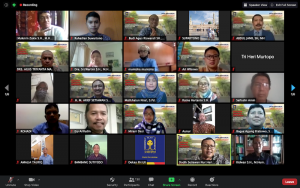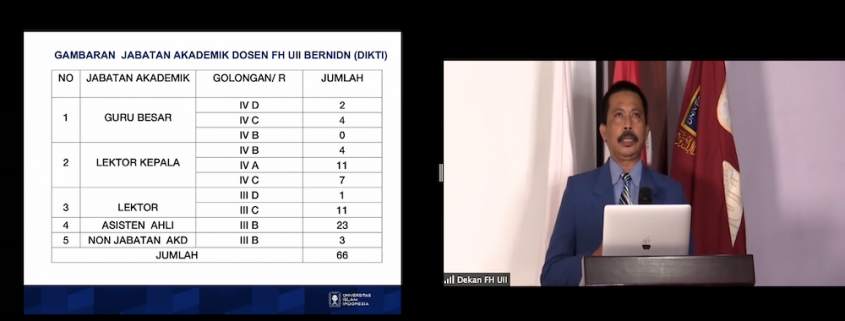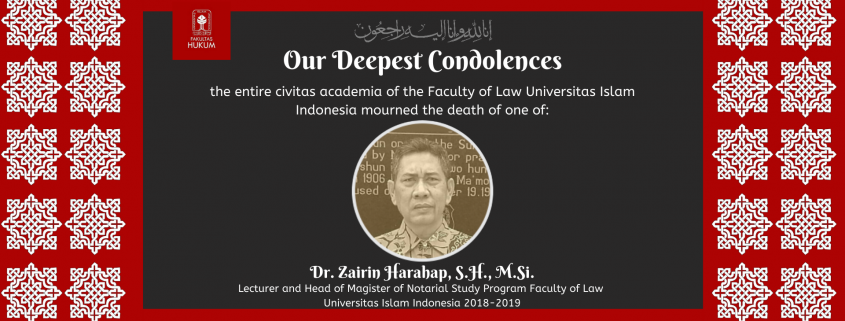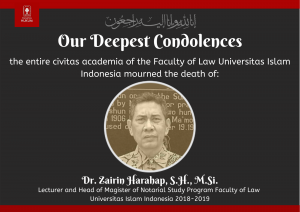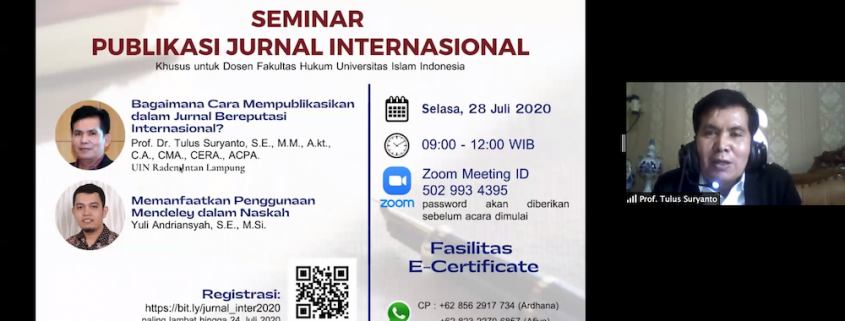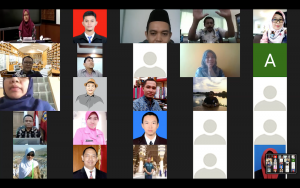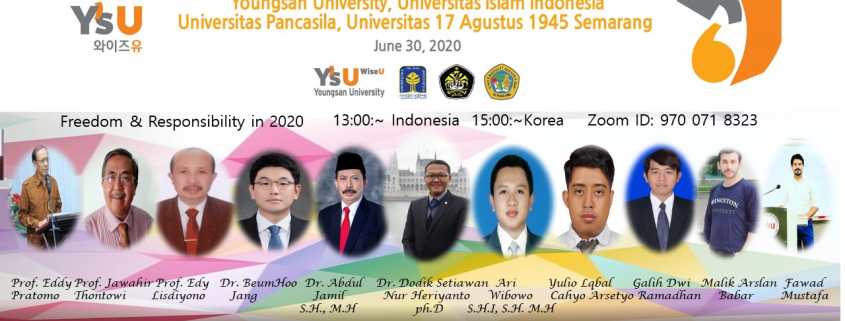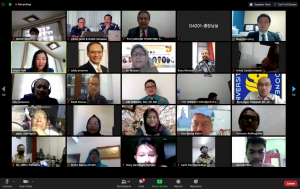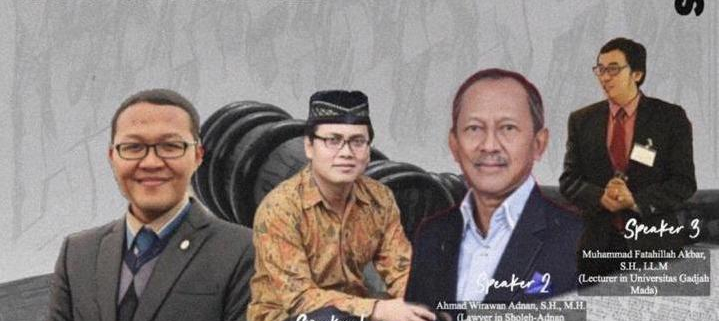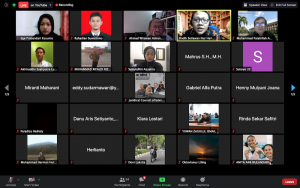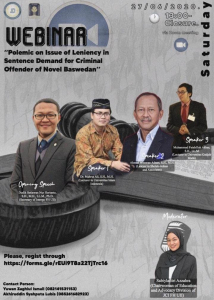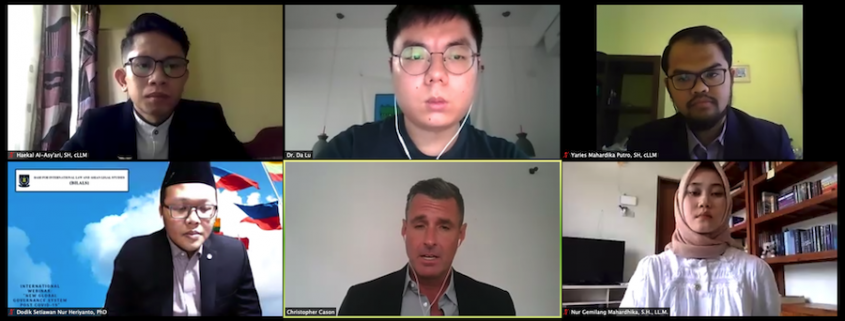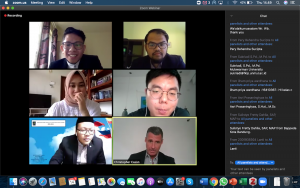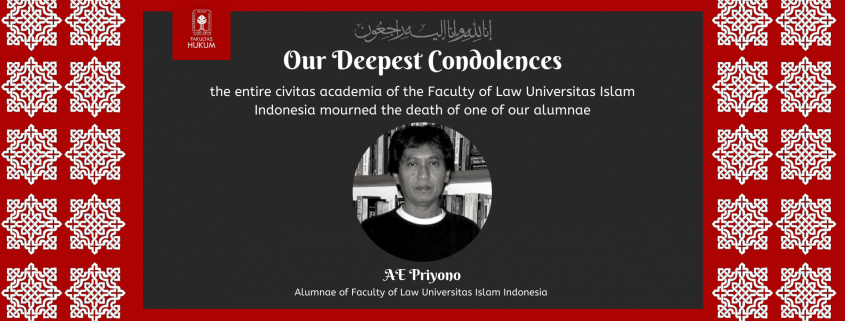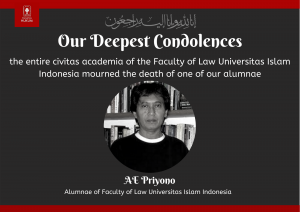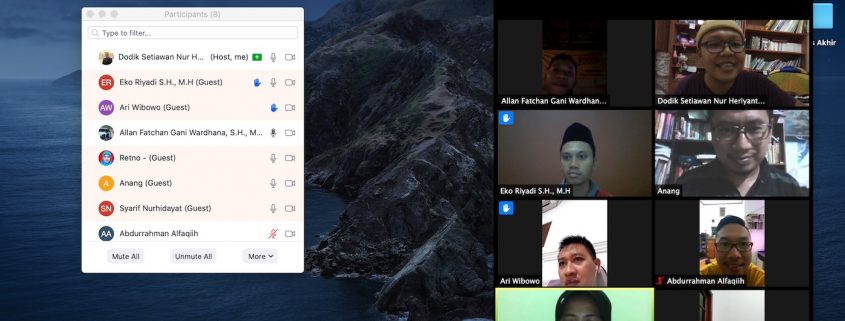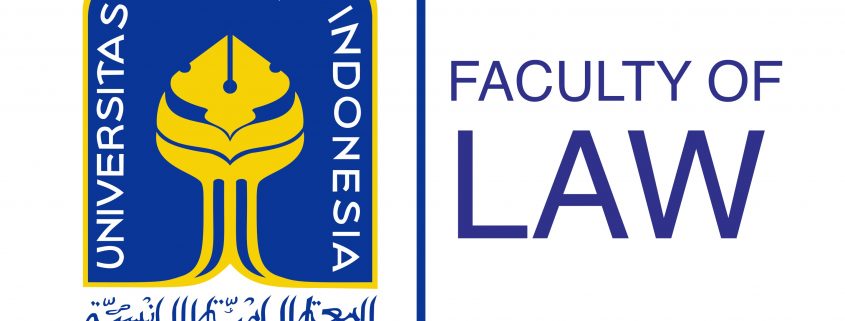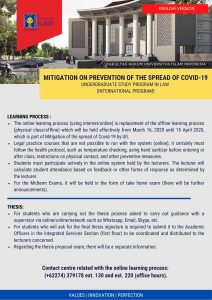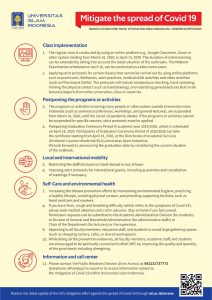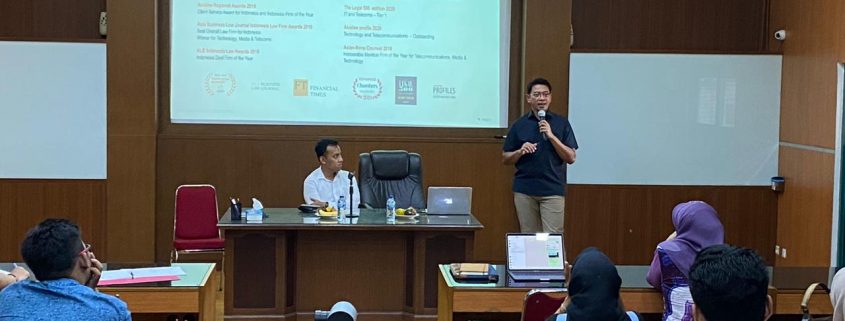The Faculty of Law of the Universitas Islam Indonesia (UII) held the Coordination Meeting to Gather Inputs for Civitas academics (Pra Rakorja) of Faculty of Law UII, on Monday (21-09-2020). This Pra-Rakorja organizing is different from previous years because it is carried out online. This is due to the fact that there are still high cases of Covid-19 transmission in Indonesia. The pre-coordination meeting was attended by more than 150 participants.
In the implementation of this Pra-Rakorja, the Dean of Faculty of Law UII, Associate Professor Dr. Abdul Jamil, SH., MH., conveyed several points of explanation on the dean’s work program. One of them is professor acceleration. “The target in 2021, we will have five professors,” said Abdul Jamil.
Currently, Faculty of Law UII has six professors. This was conveyed in Abdul Jamil’s presentation at the 2020 Pra-Rakorja with the theme “Bertahan; Berbenah; Tumbuh; dalam Rangka Mencetak Lulusan FH Berintegritas dan Profesional (Defending; Clean up; Grow; in Order to Produce Faculty of Law’s Graduate with Integrity and Professional”. According to Abdul Jamil, currently Faculty of Law UII has 107 lecturers, but only has six professors. So, a stimulus is needed to immediately accelerate professors at Faculty of Law UII.
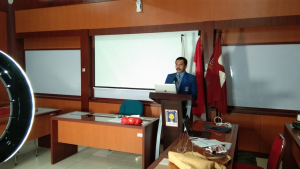
Abdul Jamil also said that this year’s Pra-Rakorja was carried out under special conditions. The Pra-Rakorja meeting was forced to not be carried out ‘face-to-face’ or offline due to the Covid-19 pandemic. The condition of the Covid-19 Pandemic is also the biggest challenge for Faculty of Law UII in implementing this year’s work program. Therefore, according to Abdul Jamil, Faculty of Law UII must ‘clean up’ and try to adjust to the situation in the new normal period. “In 2021 we must improve, we must be able to adjust the site. When we can make adjustments to the situation, and when the situation is normal, we must immediately ‘run’, to achieve the achievements for 2021, “said Abdul Jamil.
During the Pra-Rakorja presentation, Abdul Jamil also conveyed several flagship programs and activities in 2021. One of the flagship work programs is preparing the international accreditation of the Foundation for International Business Administration Accreditation (FIBAA). “We will prepare FIBAA accreditation for the undergraduate program, and international accreditation for the Master of Law Program and Notary Program”, said Abdul Jamil.
Beside the Professors Acceleration Program and FIBAA Accreditation, Faculty of Law UII also launched many internationalization programs in 2021. One of them is to conducting Research Collaboration with Ahmad Ibrahim Kuliyah of Laws International Islamic University Malaysia (AIKOLS IIUM).
The Pra-Rakorja will be followed by a Coordination Meeting to Concepting Working Plan (Rakorja) on Sunday (27-09-2020). Through the Pra-Rakorja, which was attended by all lecturers and education staff at Faculty of Law UII, it is hoped that it can provide constructive input for the implementation of the Coordination Meeting. “Therefore, we hope for input from all ladies and gentlemen for the smooth running of the Pra-Rakorja today,” said Abdul Jamil.
